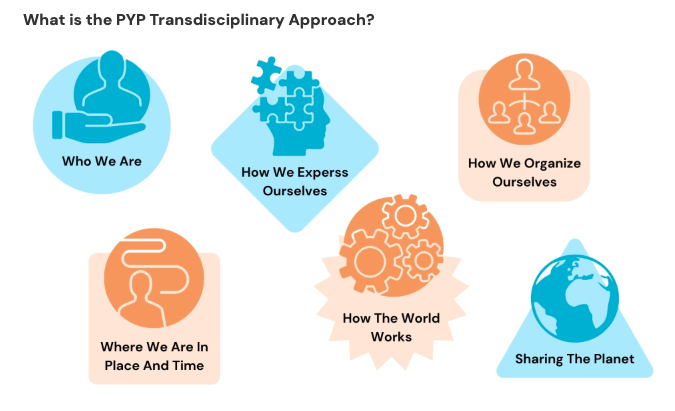Dr. Christine Orkisz Lang



Each IB programme has specific requirements that must be met for a school to achieve or maintain authorization. These begin with the IB Programme Standards and Practices, which guide the development, implementation, and review of all IB programmes.
One of the most central elements is the Programme of Inquiry (POI)—the backbone of teaching and learning in every PYP school.
When first asking “What is a POI?” in the IB Primary Years Programme, teachers and leaders are often introduced to both new vocabulary and new ways of organizing curriculum.
The Programme of Inquiry in PYP is a whole-school framework that outlines how transdisciplinary learning outcomes are addressed across all grades. It ensures that learning is broad, balanced, and connected to the six transdisciplinary themes.
The IB Standards and Practices related explicitly to the Programme of Inquiry include:


Most learning in the IB PYP curriculum is organized through six transdisciplinary themes:
These themes enable students to make connections across subject areas and explore real-world issues that matter to them.

A POI calendar is a practical way of sharing the Programme of Inquiry with the community. It maps out when each grade level engages with specific transdisciplinary themes across the school year, making the curriculum transparent and accessible for teachers, students, and families.
Creating your first Programme of Inquiry as a PYP school involves collaboration and careful planning. A school’s POI is the collection of all transdisciplinary units of inquiry across grade levels.
The role of the PYP coordinator is to facilitate collaborative planning so that each unit contributes to a balanced and articulated POI. The goal is to ensure that the Programme of Inquiry represents holistic learning while meeting local or national requirements.

Even after the POI has been developed, schools must commit to reviewing and refining your curriculum on a regular basis. This ensures continuity, balance, and relevance.
Reviews can take place at multiple levels:
Using EdTech solutions such as Qridi Core makes it easier to review, reflect, and adjust your POI continuously rather than waiting for long gaps between formal reviews.
👉 Download our POI Checklist to make sure your POI development and review stay on track!

During consultancy or evaluation visits, IB representatives may ask questions such as:
Developing a clear and shared process for reviewing and communicating your POI ensures readiness for evaluation while also supporting stronger teaching and learning.
The Programme of Inquiry is never a finished product. It is designed to evolve in response to student needs, teacher reflections, and a deeper understanding of PYP pedagogy. By regularly reviewing and refining your curriculum, schools can ensure their POI remains balanced, articulated, and relevant.
EdTech tools such as Qridi Core can support this ongoing work, helping schools maintain horizontal and vertical articulation while keeping the IB PYP curriculum transparent and manageable.
How the PYP works, IBO Website
A journey through the POI Review, Inquiry into Learning blog post
👉 Download the POI Checklist here
Qridi Core has been developed independently from the International Baccalaureate (IB). Copyright licensure for the reproduction of IB content is pending.